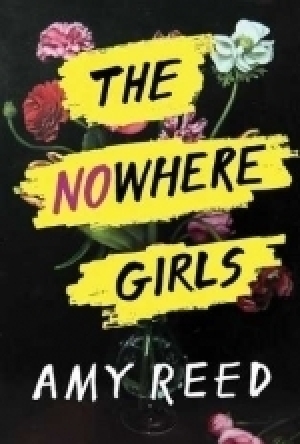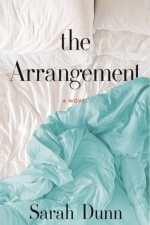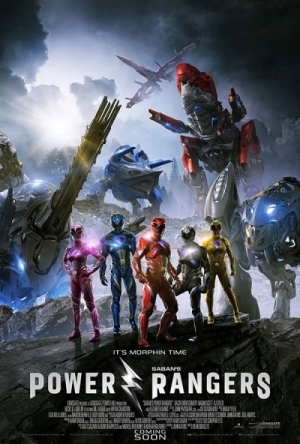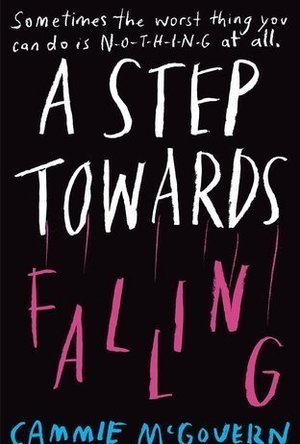mostlyinpyjamas (13 KP) rated The Nowhere Girls in Books
Nov 25, 2017
Who are the Nowhere Girls? They’re every girl. But they start with just three:
Grace, the preacher’s daughter who unwittingly moved into the old house of a victim whose pain adorns the walls.
Bold Rosina, whose heart has become hardened by all of the straight girls who broke it.
And misunderstood Erin, the girl who finds more solace in science and order than she does in people.
They are brought together by the idea of changing the narrative of a girl they had never met, Lucy Moynihan, the victim of a sexual assault who was victimised further by people who found it easier to believe she had cried wolf than to confront what had really happened to her. A girl who, through the course of one evening, went from an excited teenager who felt wanted by a boy for the first time, to someone else entirely, with ‘a voice in the darkness, giving her a new name: Slut’.
Together, they form the Nowhere Girls, and decide to avenge the
rape of a girl none of them knew.
~
I’m going to jump straight in with wow! This book packs a powerful punch.
The Nowhere Girls tackles rape culture, sexual assault, misogyny and victim blaming, and does it well.
At times it’s uncomfortable reading, but it’s realistic, the empowering feminist message is never patronising, and it does not take an All men are bad stance.
I love the diversity of the 3 main characters. Rosina is Mexican, and gay, Grace’s mum is a church pastor, run out her former church because of her outspoken, liberal views, and Erin has Aspergers, which I felt – as someone with two children with Autism- was well observed! Erin was my favourite character.
The Nowhere Girls shows what can happen when girls get together and support each other, even when they have different views on things. It shows, and gives hope, that by speaking up, by standing together, by raising one another up, we can begin to bring about change.
Amy Reed writes, at the end of the book, how the story was partly inspired by events in her town, owners of a coffee shop were called out by the people in the town, on their misogynistic behaviour, which included a graphic list of sexual conquests – including local women, posted online. They eventually left town in disgrace.
The excerpts from the (fictional) blog in the book, The real men of Prescott were difficult to read, mostly because there really are people who think this way.
This is taken from the blog….
Girls want to be taken; it’s in their natures, so sometimes they put up a fight hoping you’ll get a little rough. The truth is, sometimes no doesn’t mean no. Of course, the feminazis will never admit this, but I’ll bet you a hundred bucks most of those chicks like it rough.
We really do need to talk about rape culture, every girl needs to know that they can say no, at any point, that even if they are too drunk to consent it’s not their fault, it’s still rape, that even if they didn’t have the strength to fight it’s not their fault, it’s still rape, boys need to know this too.
There needs to be a change within society, rape culture is real, it’s happening, and it needs to stop. Any book that can start a conversation about this is a good thing, in my opinion, and with its raw honesty The Nowhere Girls is an emotional, hard hitting, important book.
Buzzfeed says the Nowhere Girls is
‘Empowering, brutally honest, and realistically complex’
Kristy H (1252 KP) rated The Arrangement in Books
Feb 13, 2018
This novel is a different, oddly intriguing read, offering an extremely realistic portrayal of marriage and raising children. Warm and fuzzy it is not, yet it's still engaging and features relatable characters. Lucy and Owen's exhaustion is palatable, as is Lucy's frustration and love for Wyatt, who is an intelligent, fun, and extremely challenging special needs kid. (You will grow to love him, even as you completely empathize with why poor Lucy might need a break--one of the definite strengths of the book.) For a good early portion of the novel, I found myself thinking I would be reading a quite grim look at parenthood and marriage. And it is, in many ways. After all, why are Lucy and Owen so willing to embark on the arrangement, you wonder? Are they bored with their life, with each other? Are they simply tired parents? What causes them to choose this? As the arrangement begins, their reactions to its ongoing presence in their lives is surprising, and Dunn does a good job at capturing some nuance in their character that you might not expect. These are real married people, with real issues.
Still, there are definitely some odd bits and pieces stuck into the story. It seems disjointed at times, and some of the characters and their stories seem to pop up at weird times, forcing you to remind yourself how they fit into Lucy and Owen's life and the town of Beekman (for we don't hear just from our main couple, but several others who live in town). The novel meanders at times, and I wouldn't call the ending closure, per se, though it falls in line with the realism of the novel.
Where Dunn shines is her humor, which slips through even some of the darker moments. Moments with Wyatt are perfectly captured. Lucy's friend, Sunny Bang, is one of the best things about this book, and you'll love every second featuring her. There's a scene at the town church with many of the local kids (and their pets) that is solely worth purchasing the entire book. Seriously, Dunn writes with a sharp wit, and it's one of the main reasons my rating upped to 3.5 stars. The book is often smartly funny and feminist, even if it has its depressing, wandering moments. It's a fascinating look at marriage, for sure, and I was certainly intrigued to see how the arrangement would play out. It was also a welcome break from all the thrillers I'd been reading lately, so thanks! If you like sharp and witty characters coupled with a psychological inside look at modern-day marriage, you'll find this one quite compelling. 3.5 stars.
I received a copy of this novel from the publisher and Netgalley (thank you) in return for an unbiased review. It is available everywhere as of 03/21/2017.
<center><a href="http://justacatandabookatherside.blogspot.com/">Blog</a>; ~ <a href="https://twitter.com/mwcmoto">Twitter</a>; ~ <a href="https://www.facebook.com/justacatandabook/">Facebook</a>; ~ <a href="https://plus.google.com/u/0/+KristyHamiltonbooks">Google+</a></center>;

Scene Speak
Education and Medical
App
Scene Speak is versatile customizable app that provides a framework on the iPad to create...

Proloquo2Go
Education and Medical
App
Proloquo2Go is an award-winning symbol-supported communication app. It provides a voice to over...

Speech Assistant AAC
Medical and Education
App
Speech Assistant is an AAC app designed for people who are speech impaired. This may be in the case...
Gareth von Kallenbach (980 KP) rated Power Rangers (2017) in Movies
Jul 12, 2019
Fans on social media have often expressed their dissatisfaction with films not staying true to the origin stories or their inabil;ity to retain much of the character and charm that endeared them to their fans. Power Rangers does not suffer from this dilemma. As someone who watched the series as it first hit American markets in the 1990s, I was unsure of how this story would transfer onto the big screen.
It wasn’t something that I was too personally invested in. It was a series in which I considered myself to be a casual fan understanding the background, characters, and general direction of the show. I wasn’t prepared for what the film version offered.
This adaptation is near perfect in the way that it is able to create a modern, mature version that incorporates many aspects into weaving their story.
The basics of the film are roughly the same as the show: it is based in Angel Grove, there are five teenagers serving the role of rangers whose goal is to save the world, and all the complexities that come with being a superhero who has a “real life.”
One of the more remarkable issues related to the film is how the writers and director are able to be inclusive with their characters without being condescending to their audiences old and new. We get a glimpse of a team that is more colorful and diverse. Where the original crew showed a group of youths of different races, the film version does not stop with race as demonstrating the variety that exists within our world. The film allows for the inclusion of people on the autism spectrum, as well as, allowing for the inclusion of the LGBT community. The film shows audiences that there are people just like them or people that they know in the superhero realm. It is not limited by race, gender, sexual orientation, or cognitive development.
Power Rangers itself is a fun movie with depth. As the film continued, I tried to look for areas to pick it apart and find those pieces that really detracted from the story. The film has its faults in a simply developing storyline, but that goes with the franchise. It isn’t supposed to be complex or overbearing. The humor ranges from sophomoric to sophisticated. The film is accessible to those who are new to the franchise and those who have been watching since its inception. Additionally, it is a superhero movie it is not insulting to its audience. It demonstrates the difficulties that exist with teen life, presents real problems that they have to deal with in contrast to the fantasy that they are living out as part of this team.
The film is beautifully shot and the CGI is nearly seamless (the film is not overly reliant on it, either). The fighting and action sequences are as much a part of the story as the characters themselves. Power Rangers allows for audiences to be entertained visually and comedically. Additionally, it allows for those of us who have not watched or followed the Power Rangers in a while to be a bit nostalgic and look back to when we ourselves could not get home quickly enough for “Morphin’ Time.” The film is updated, mature, and will have fans young and old beaming with delight.

First Phrases HD
Education and Games
App
From SmartAppsforKids.com: "In my opinion, the full version is a must-have for parents of children...

Grace - Picture Exchange for Non-Verbal People
Education
App
Grace App - winner of the 2010 Irish Web Awards and United Nations World Summit Award Mobile. * * *...
Hazel (1853 KP) rated A Step Towards Falling in Books
Dec 14, 2018
<i>This eBook was provided by the publisher via NetGalley in exchange for an honest review
A Step Towards Falling</i> by Cammie McGovern is a book full of important messages. As with a couple of her previous novels, McGovern writes about characters with developmental disabilities, i.e. Autism, focusing on the ways in which they interact with the world around them and vice versa. This particular story is written with teenagers in mind, featuring topics such as dating and future prospects.
One of the narrators Emily, along with high school football player Lucas, are being punished for not helping a disabled student when they witnessed her being assaulted. In order to appease the school they are subjected to forty hours of community service – voluntarily helping to run the Boundaries and Relationships class at the Lifelong Learning Centre. Here they meet a handful of people with disabilities who need help to identify what is and what is not acceptable in potential romantic relationships. Although Emily and Lucas initially think members of the group are strange, they soon learn to see through their quirks and admire them for their positive personalities.
The second narrator, Belinda, is the assaulted girl. To begin with she is no longer attending school as her grandmother has deemed it an unsafe place. Belinda describes her life with childlike innocence, naively believing she is like everyone else and not understanding why she never receives the same privileges, e.g. joining after school clubs, getting a job. Whilst she slowly regains her confidence to return to school, Emily and Lucas begin to enjoy working at the LLC, however continue to feel guilty, as they are aware that although they are doing a great job, it is not doing anything to make Belinda’s life better. So, they aim to change that.
Although relationships feature heavily in this novel, <i>A Step Towards Falling</i> is largely based on similar themes to Jane Austen’s <i>Pride and Prejudice</i> – incidentally Belinda’s favourite story. Each key character have their own prejudices towards other people and act as though they are better than everyone else. Emily instantly judges Lucas to be a popular, uneducated boy due to his position on the school football team. Likewise, Lucas judges Emily for hanging out with “nerdy” people who only care about grades and getting into good colleges. Belinda, despite being different due to her disability, believes she is better than other people in her class because she can read and use a computer, whereas many can barely string a sentence together.
What McGovern is stressing throughout this narrative is the importance of getting to know someone first instead of arrogantly assuming you know exactly what they are like based on appearance. As can be revealed in <i>Pride and Prejudice</i>, someone who appears rude and distant may actually have a lovely, kind and considerate personality. Emily and Lucas learn this quite quickly, and Belinda is not far behind them. It is a shame that not many other people are as swift to realize this.
Although <i>A Step Towards Falling</i> is a work of fiction it deals with issues that many high school students, and even adults, face even if they do not realize it. Football players are often presumed to be unintelligent, likewise clever, “nerdy” people may come across as distant and uncaring. The worst thing that most, if not all, are guilty of is the presupposed belief that developmentally disabled people are weird and to be avoided. This is entirely false, as McGovern reveals; they have the right to the same life as anyone else, the only difference is they may take longer to learn what comes naturally to most people.
As a novel, <i>A Step Towards Falling</i> is a fairly gentle read about completely realistic events. Although there are references to Belinda’s assault, there is nothing majorly distressing. On the other hand, it is a bit too plain sailing, with no climax to speak of. Through her attempt to create an accurate representation of disabled people, McGovern fails to grip the reader or create excitement. There is no suspense or anticipation, which unfortunately makes the book a little disappointing.
Overall the story line may not be the most thrilling however it has a powerful voice and a satisfying ending. All teenagers, and adults too, should read this book and become more mindful of their behaviour and prejudices. Naturally this is not something that will be easy to completely eradicate, but as this book reveals, once you are aware of your inaccurate impressions it become easier to accept people the way they are, and become confident in getting to know their true personality.




